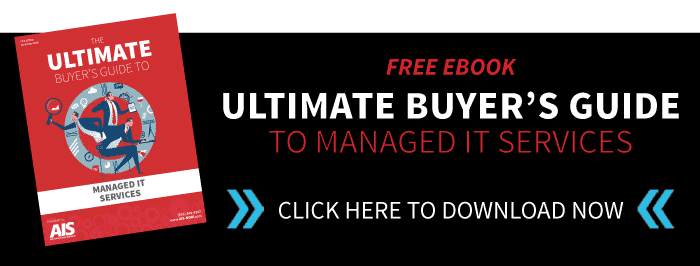How Can Managed IT Services Help My Remote and In-house Employees?
January 30th, 2025 | 5 min. read

From modern to vintage, small to large, offices have always been essential business centers. Even then, technology has evolved rapidly, which has made businesses more competitive and efficient.
Gone are the days when the head office houses all the computers and servers running several corporate processes. All companies can benefit from outsourcing their IT needs and educating their employees on these aspects, whether small or large.
In this article, we’re going over how managed IT services help support your remote and in-house employees. Let’s dive in!
For Starters: What are Managed IT Services?
Managed IT services are the outsourced management of your organization's IT functions. Managed service providers (MSPs) take over the day-to-day responsibility for monitoring, managing, and problem resolution for selected IT systems and processes on behalf of their clients.
Managed IT services allow you to ease the burden on your internal IT team. You can be free from tedious and repetitive tasks to focus your time on more strategic projects and initiatives.
The Benefits of Outsourcing Managed IT Services
There are many benefits of outsourcing your IT that can save you time and money and help keep your essential business and data files safe from online cyberattacks. Take a look at some of these benefits below:
Reduced Risk
Cyber attacks are quickly becoming a part of the business environment. Companies need to do everything possible to protect their information. Managed IT security services reduce risk by keeping antivirus and anti-malware software up to date, protecting your networks from viruses, worms, and other attacks.
This service can also monitor your systems and identify potential problems before they cause severe damage. They can keep unwanted traffic off your network and prevent employees from accessing malicious websites or web services/add-ons.
Data Backup and Disaster Recovery Services
Like most companies, you probably store critical business data on your computer's hard drives or cloud storage platforms. While these are great data backup options, they're not always fail-safe.
Hard drives can fail, while even the best cloud services can suffer from occasional outages that leave you without access to your files. Also, hackers are getting better at stealing data and crippling systems with ransomware, so you should have a backup plan to prevent permanently losing access to valuable data.
Managed IT services providers offer backup and recovery options to keep your business operational even when disaster strikes.
Access to Expert Skills
IT departments need a mix of highly technical skills and business knowledge. Some companies can fill those roles with internal hires, which can be expensive and complicated. Outsourcing allows companies to tap into a pool of specialized talent quickly.
Reduced Costs
Outsourcing IT services can reduce costs dramatically. Hiring IT staff in-house can be costly for businesses that don't need a full-time IT department. With outsourced support, you only pay for the support your business needs when required.
It includes all software, hardware, maintenance costs, and other resources required to keep your systems running smoothly and efficiently. These services could come at a monthly fee or annually—depending on your contract or service level agreement (SLA).
Improved Productivity
Outsourced IT services can increase productivity throughout your organization—whether your employees work in-house or remotely.
When people can use their computers more effectively, they become more productive at their jobs. Employees will work more productively with better-managed networks and systems.
Access to the Latest Technology
Outsourcing support allows you to access the latest technology without costly investments in new equipment or software. An outsourced support team will monitor your network regularly and conduct regular maintenance checks using the latest tools available on the market today.
Affordability
A full-time employee may not be the most cost-effective way to get the skills and services. You don't have to spend money on salary, benefits, and training. You only pay for what you need with a managed service provider.
Improved Reliability and Managed Security
Managed service providers deliver around-the-clock monitoring and support. They'll watch for problems on your network and address them before they become serious issues, keeping your technology up and running at all times.
They'll also help you secure your networks, systems, and mobile devices and prevent hacking, data theft, and other cybersecurity threats.
Scalability
When you have a dedicated in-house IT staff, scaling up when things get busy and scaling down when they don't can be challenging. You can't just add or retrench employees whenever you want. Instead, they're there whether they're needed or not.
However, this isn't an issue with outsourced managed IT service providers. Because they're there only when needed, scaling up and down is much easier than in-house staff ever could be.
How Should I Choose a Managed IT Service Provider?
Whether you have employees working on-site or remotely, keeping them happy is essential. A stressed-out employee is an unproductive employee.
If people get frustrated by their computers or other devices, they won't be productive. That's why it's so essential for companies with remote workers to consider using managed IT services for the following reasons:
- To fix problems quickly so your employees can get back to work
- To provide routine maintenance and prevent problems from developing
- To ensure that your systems are secure and protected from malware and hacking.
What Should I Look For in a Managed IT Service Provider?
When searching for an IT service provider, we recommend that you look for these qualities:
-
Cost-effectiveness: Being cost-effective isn't just about looking for the cheapest option but asking questions about what you'll pay for, how often, and how much.
-
Transparency: A great managed service provider, like AIS, will be open and honest with their clients about what they provide and how they do their work. They will also have a wide range of support options available whenever you need help.
-
Experience: Experience matters when choosing a managed IT service provider, especially if you are a small business owner new to remote work or cybersecurity practices.

The Final Say: Managed IT Services and Your Employees
IT is a big part of a business's operations, especially when it comes to remote and in-house employees. These employees can be anywhere, working on anything and facing many problems.
There's an increasing need for IT services to support these needs, no matter where and what they're working on. Managed IT services answer this call by providing efficient, flexible support. Contact AIS today to speak with us!
A true southerner from Atlanta, Georgia, Marissa has always had a strong passion for writing and storytelling. She moved out west in 2018 where she became an expert on all things business technology-related as the Content Producer at AIS. Coupled with her knowledge of SEO best practices, she's been integral in catapulting AIS to the digital forefront of the industry. In her free time, she enjoys sipping wine and hanging out with her rescue-dog, WIllow. Basically, she loves wine and dogs, but not whiny dogs.


